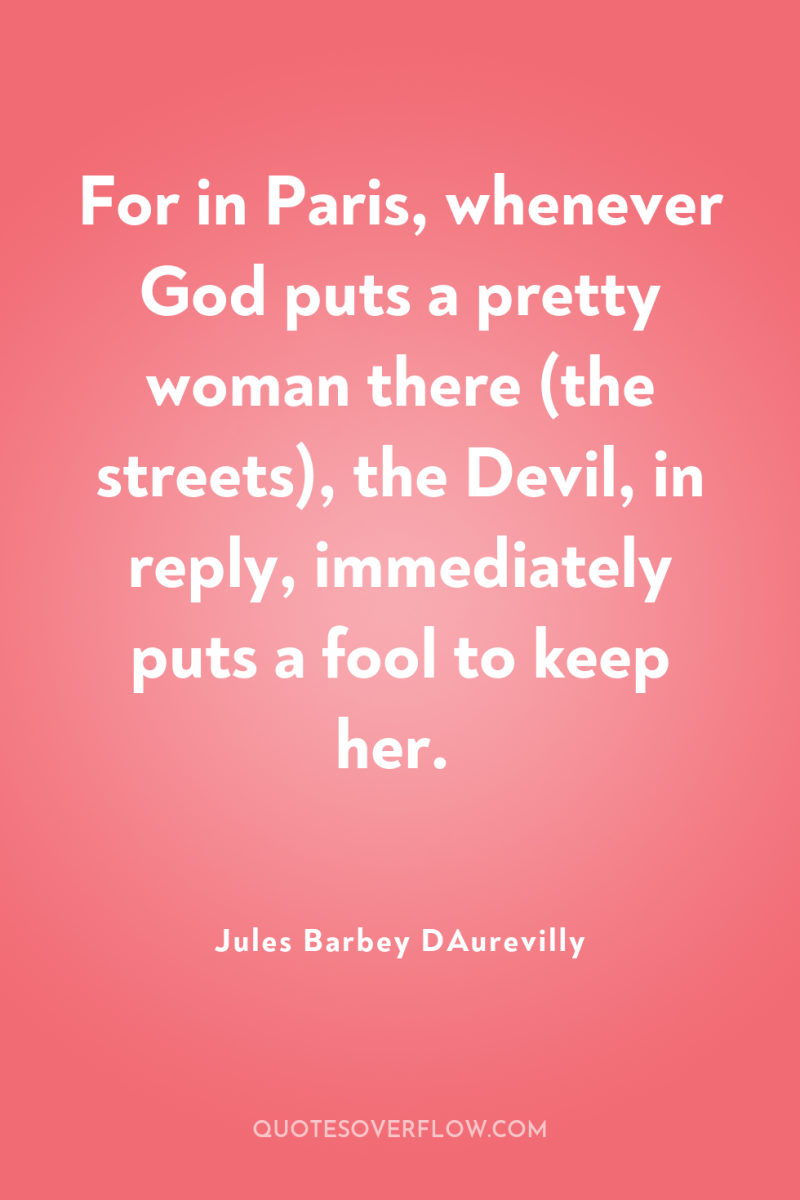
1
For in Paris, whenever God puts a pretty woman there (the streets), the Devil, in reply, immediately puts a fool to keep her.Jules Barbey DAurevilly
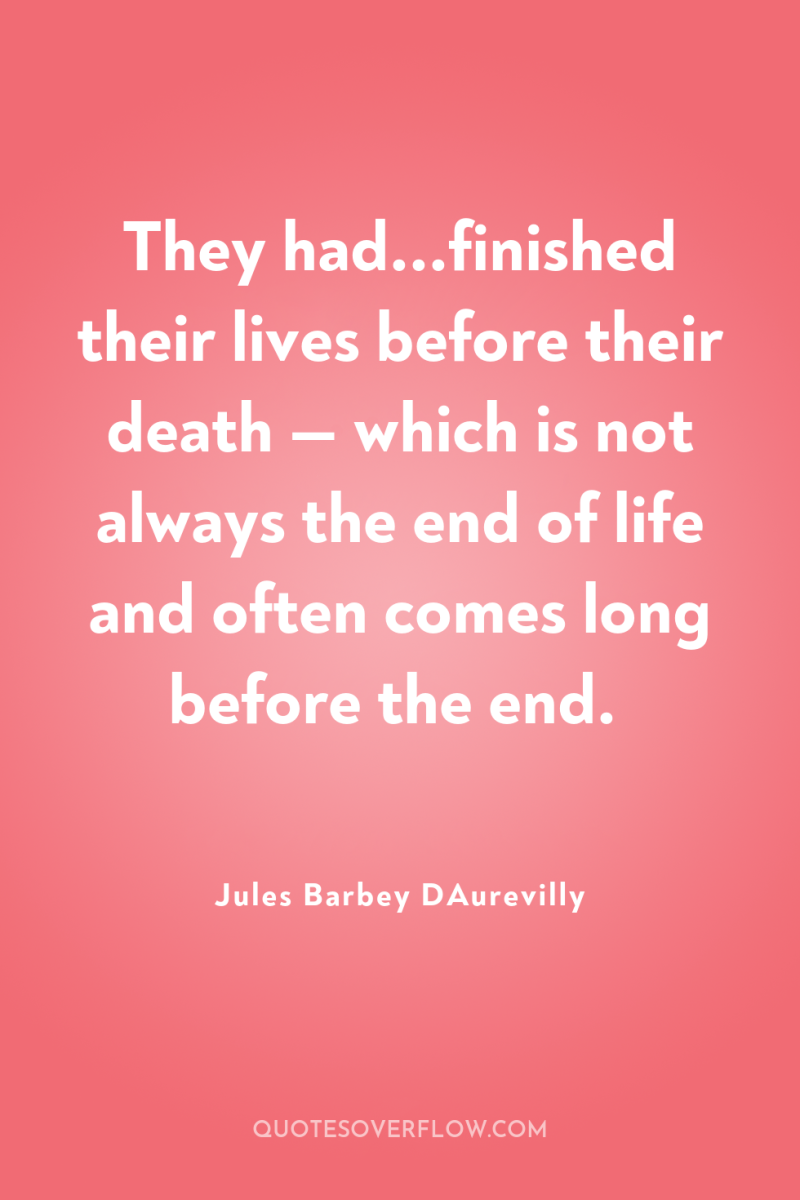
2
They had...finished their lives before their death — which is not always the end of life and often comes long before the end.Jules Barbey DAurevilly
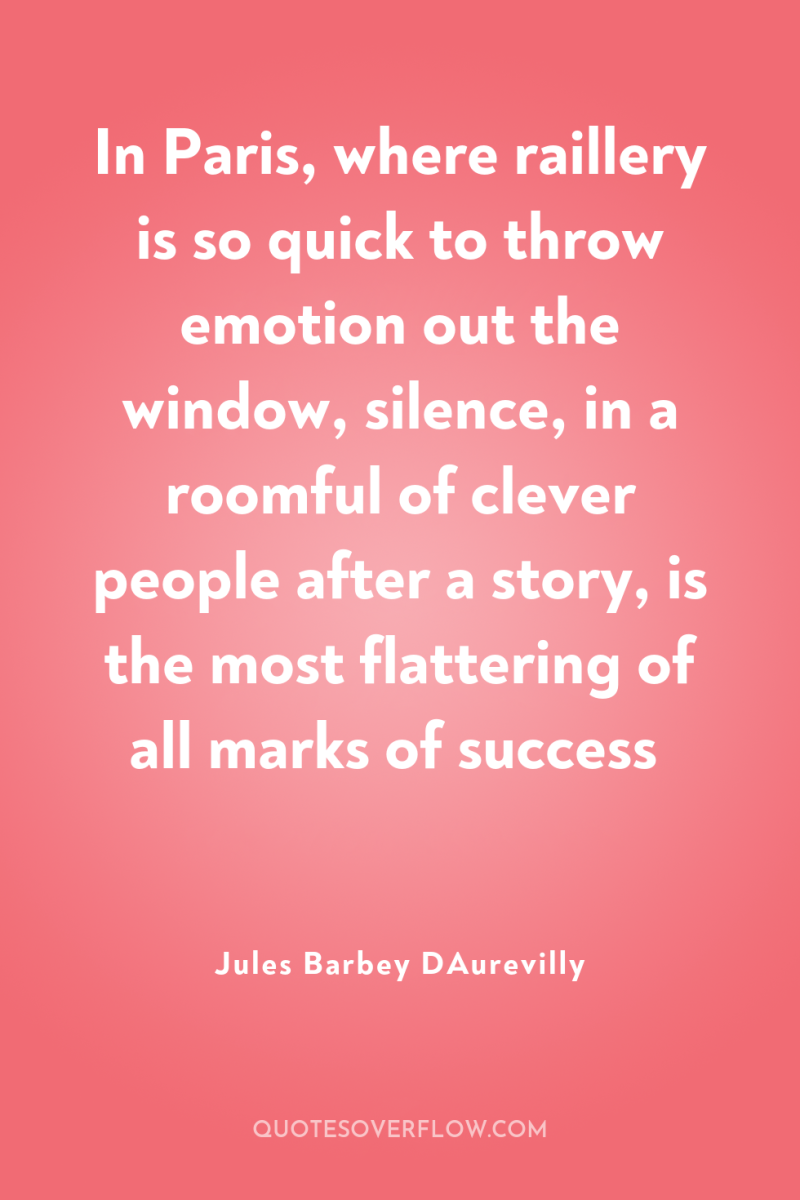
3
In Paris, where raillery is so quick to throw emotion out the window, silence, in a roomful of clever people after a story, is the most flattering of all marks of successJules Barbey DAurevilly

4
The Devil teaches women what they are — or they would teach it to the Devil if he did not know.Jules Barbey DAurevilly
5
She was one of those women of good family who no longer exist, elegant, distinguished, and haughty, whose pallor and thinness seem to say, 'I am conquered by the era, like all my breed. I am dying, but I despise you, ' and - devil take me! - plebeian as I am, and though it is not very philosophical , I cannot help finding that beautiful.Jules Barbey DAurevilly
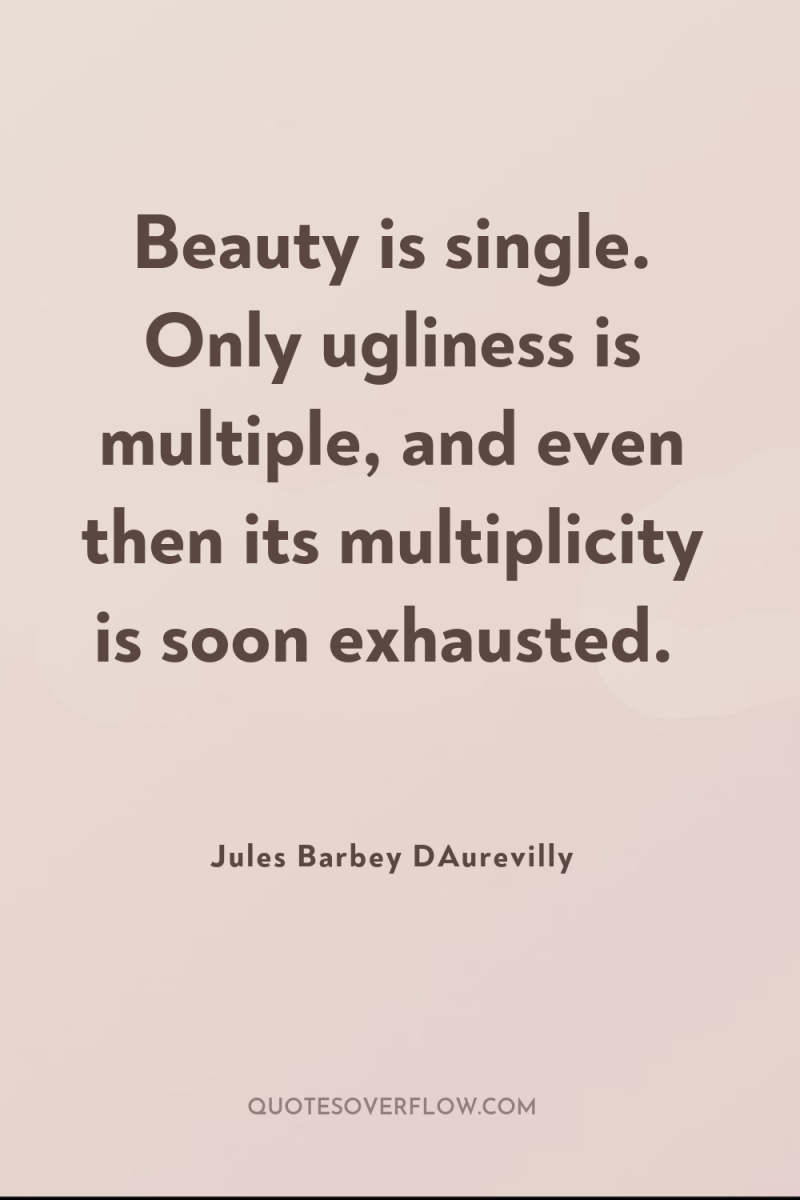
6
Beauty is single. Only ugliness is multiple, and even then its multiplicity is soon exhausted.Jules Barbey DAurevilly
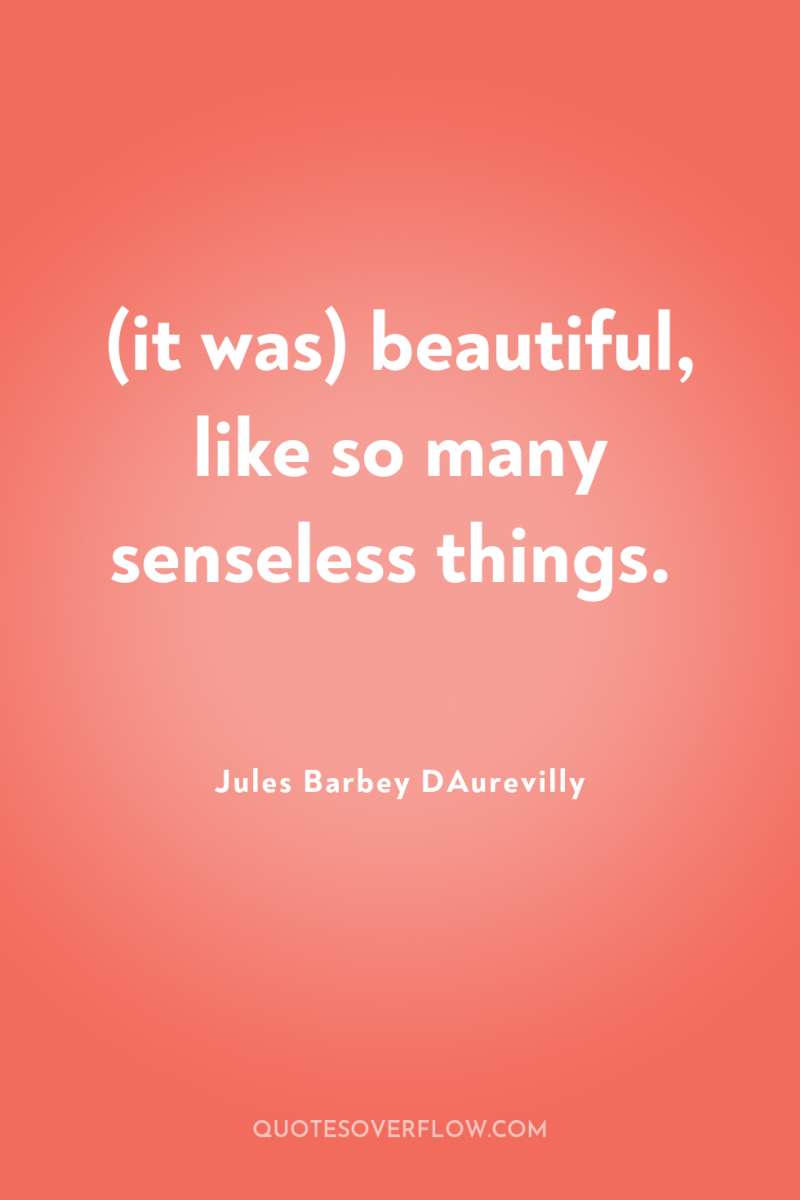
7
(it was) beautiful, like so many senseless things.Jules Barbey DAurevilly
8
If writers only dared to dare, a Suetonius or a Tacitus of the Novel could exist, for the Novel is essentially the history of manners, turned into a story and a play, as is History itself often enough. And there is no other difference than this: that the one, the Novel, cloaks its manners under the disguise of invented characters, while the other, History, provides names and addresses. Only, the Novel probes much deeper than history. It has an ideal, and History has none; it is limited by reality. The Novel also holds the stage much longer. ("A Woman's Vengeance") .Jules Barbey DAurevilly
9
He had a reputation in society as a man with a lively wit, whose gaiety was pleasant and formidable — which all gaiety must be in a society which would despise you if, while amusing it, you did not make it tremble a little. ("A Woman's Vengeance")Jules Barbey DAurevilly
10
Men are all the same. Novelty amongst themselves displeases and upsets them — but if the novelty is wearing a skirt, they go crazy fJules Barbey DAurevilly
11
He was terrified by the sublime horror of it, for intensity of feeling, carried to this degree, is sublime. ("A Woman's Vengeance")Jules Barbey DAurevilly
12
Fools — in other words most people — imagine that it would be a wonderful achievement to be able to recover our youth; but those who know life are aware how little it would profit us. ("A Woman's Vengeance")Jules Barbey DAurevilly
13
I did not want to be taken for a fool — the typical French reason for performing the worst of deeds without remorse.Jules Barbey DAurevilly
14
For with dandies, a joke is the only way of making yourself respected.Jules Barbey DAurevilly
15
Extreme civilization robs crime of its frightful poetry, and prevents the writer from restoring it. That would be too dreadful, say those good souls who want everything to be prettified, even the horrible. In the name of philanthropy, imbecile criminologists reduce the punishment, and inept moralists the crime, and what is more they reduce the crime only in order to reduce the punishment. Yet the crimes of extreme civilization are undoubtedly more atrocious than those of extreme barbarism, by virtue of their refinement, of the corruption they imply and of their superior degree of intellectualism. ("A Woman's Vengeance") .Jules Barbey DAurevilly
16
And, in fact, if these crimes appeal less to the senses, they appeal more to the mind; and the mind, in the last analysis, is the profoundest part of us. For the novelist, therefore, there is a new type of tragedy to be derived from these crimes, more intellectual than physical in character, which do not really seem to be crimes to the superficial judgement of old materialistic societies because they do not involve bloodshed, and murder is committed only in the sphere of feelings and manners.Jules Barbey DAurevilly
17
Night, which in Autumn seems to fall from the sky so suddenly, chilled us...Jules Barbey DAurevilly
18
Dandies, who — as you know - scorn all emotions as being beneath them, and do not believe, like that simpleton Goethe, that astonishment can ever be a proper feeling for the human mind.Jules Barbey DAurevilly
19
We priests are the surgeons of souls, and it is our duty to deliver them of shameful secrets they would fain conceal, with hands careful to neither wound no pollute.Jules Barbey DAurevilly
20
Yet, whether to the glory or to the shame of human nature, in what we call pleasure (with an excess of scorn, perhaps) there are abysses as deep as those of love.Jules Barbey DAurevilly
21
Hatred needs scorn. Scorn is hatred's nectar!Jules Barbey DAurevilly
22
Passions are less mischievous than boredom for passions tend to diminish and boredom increase.Jules Barbey DAurevilly